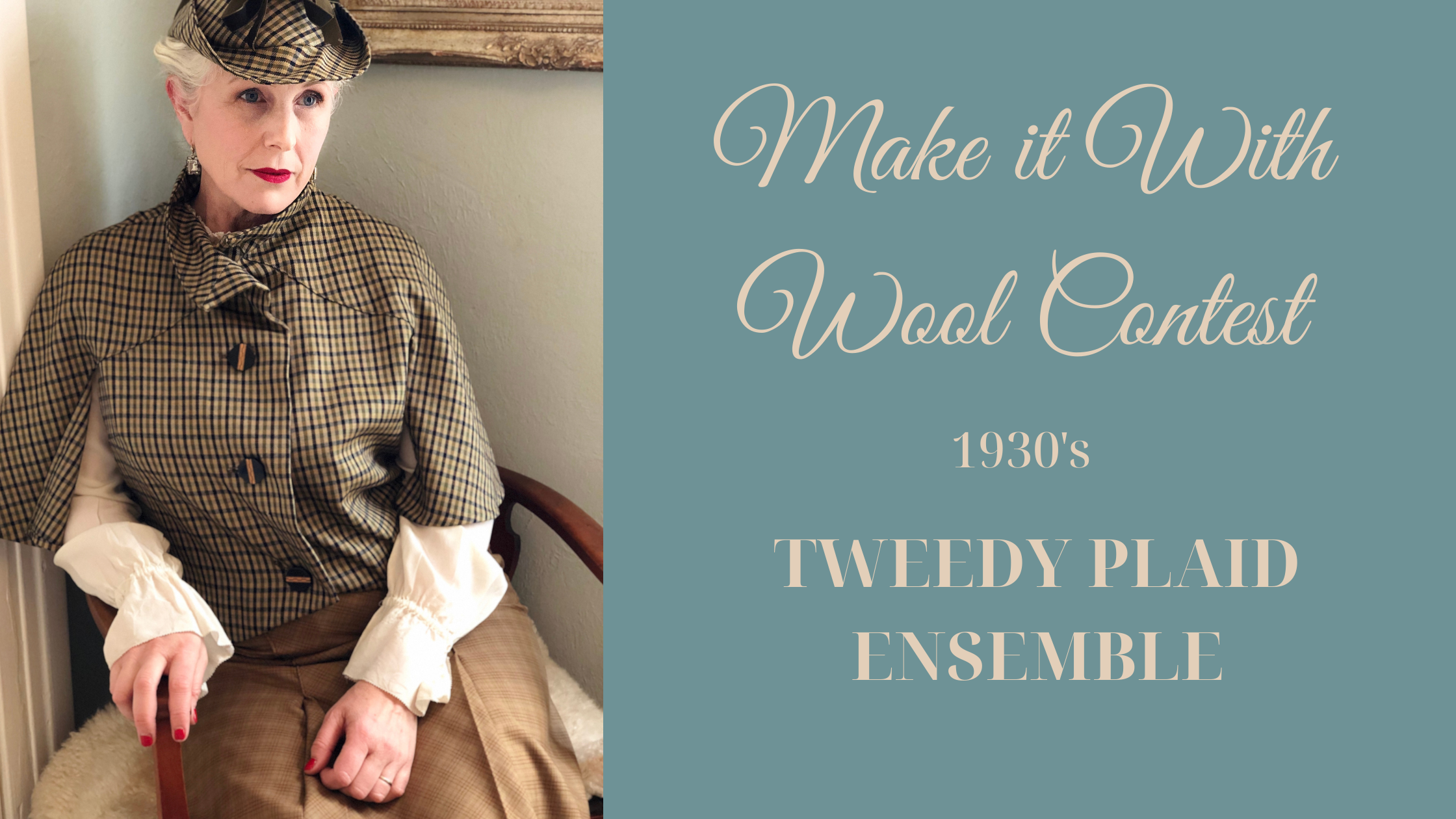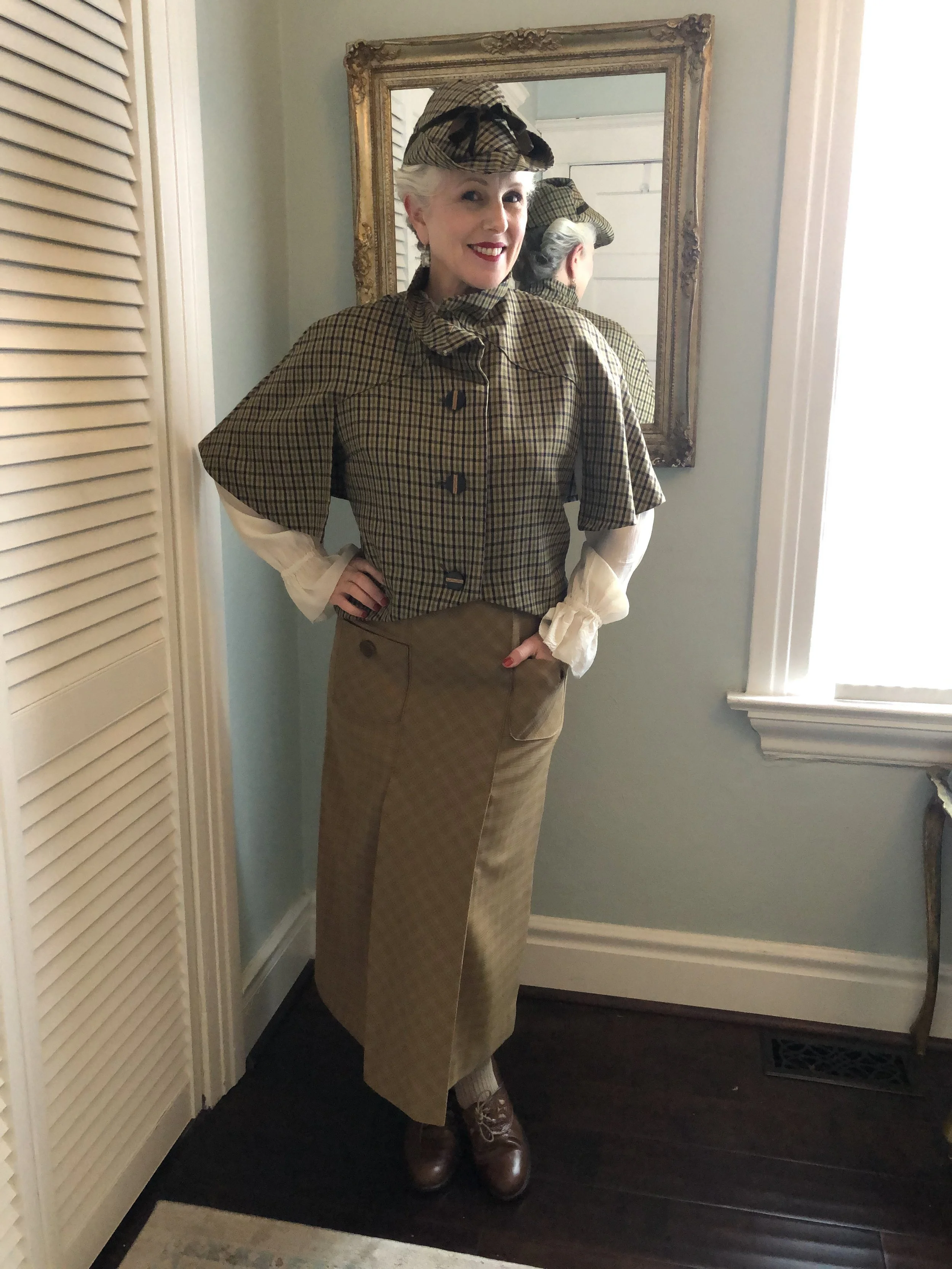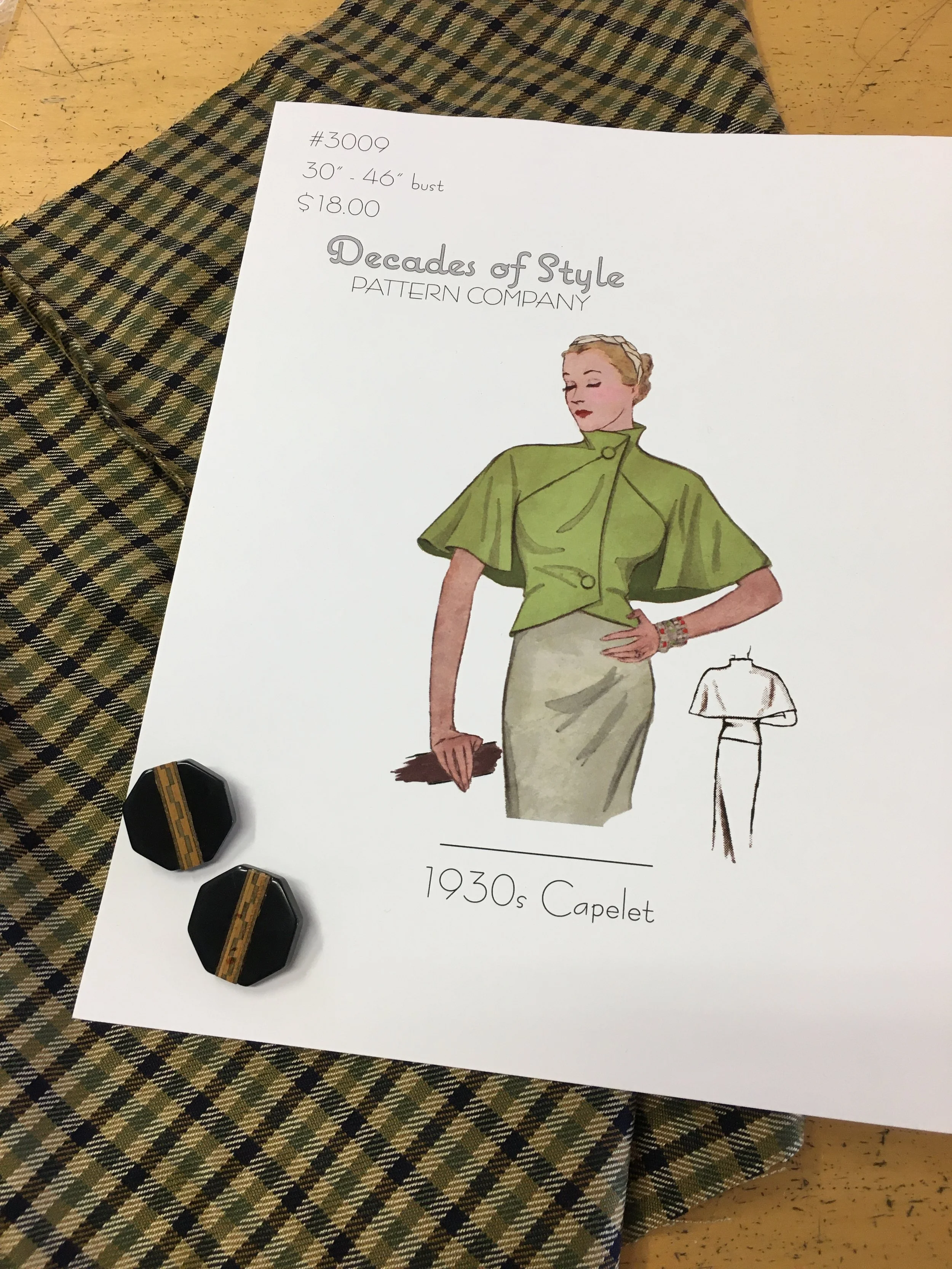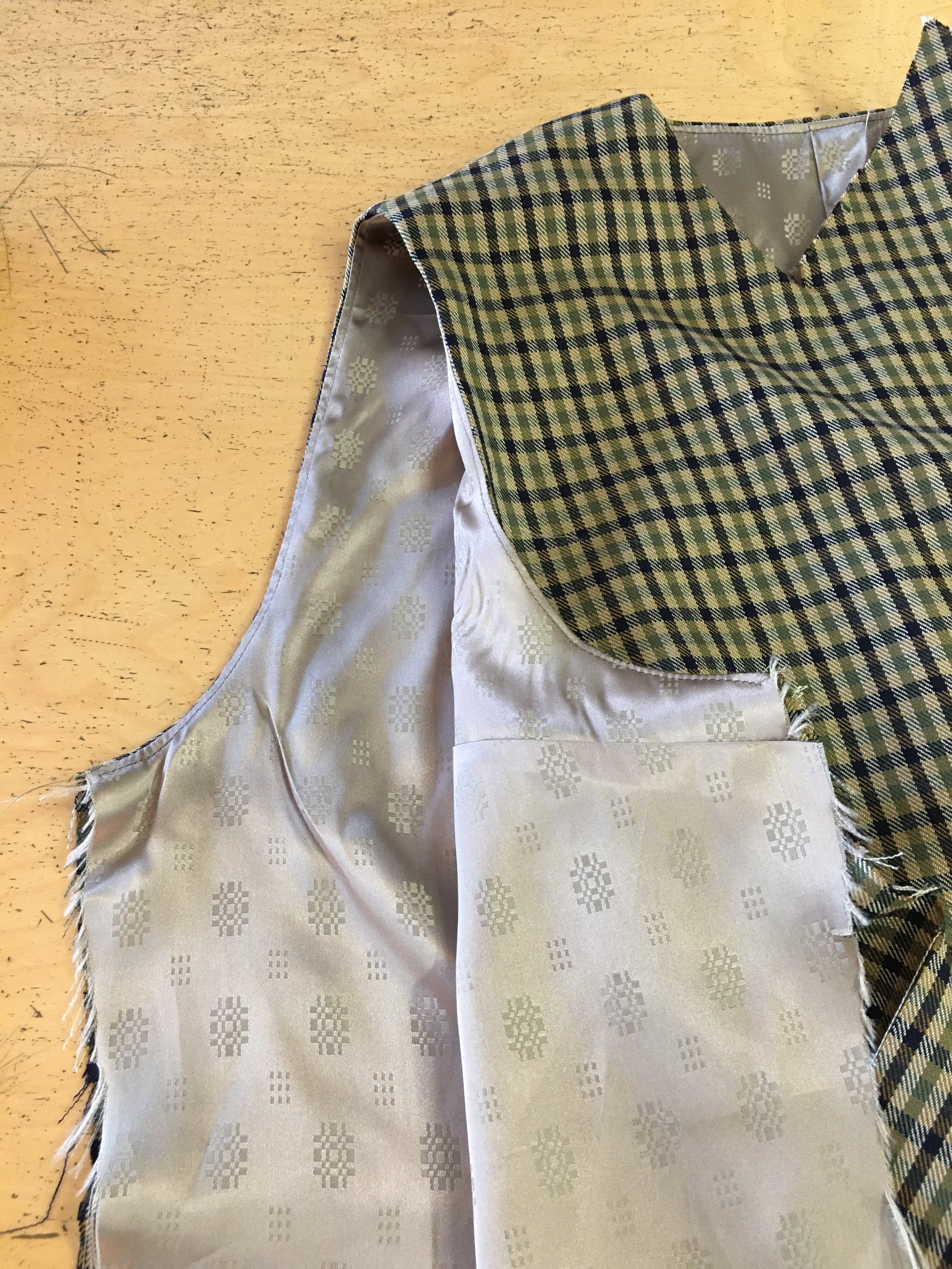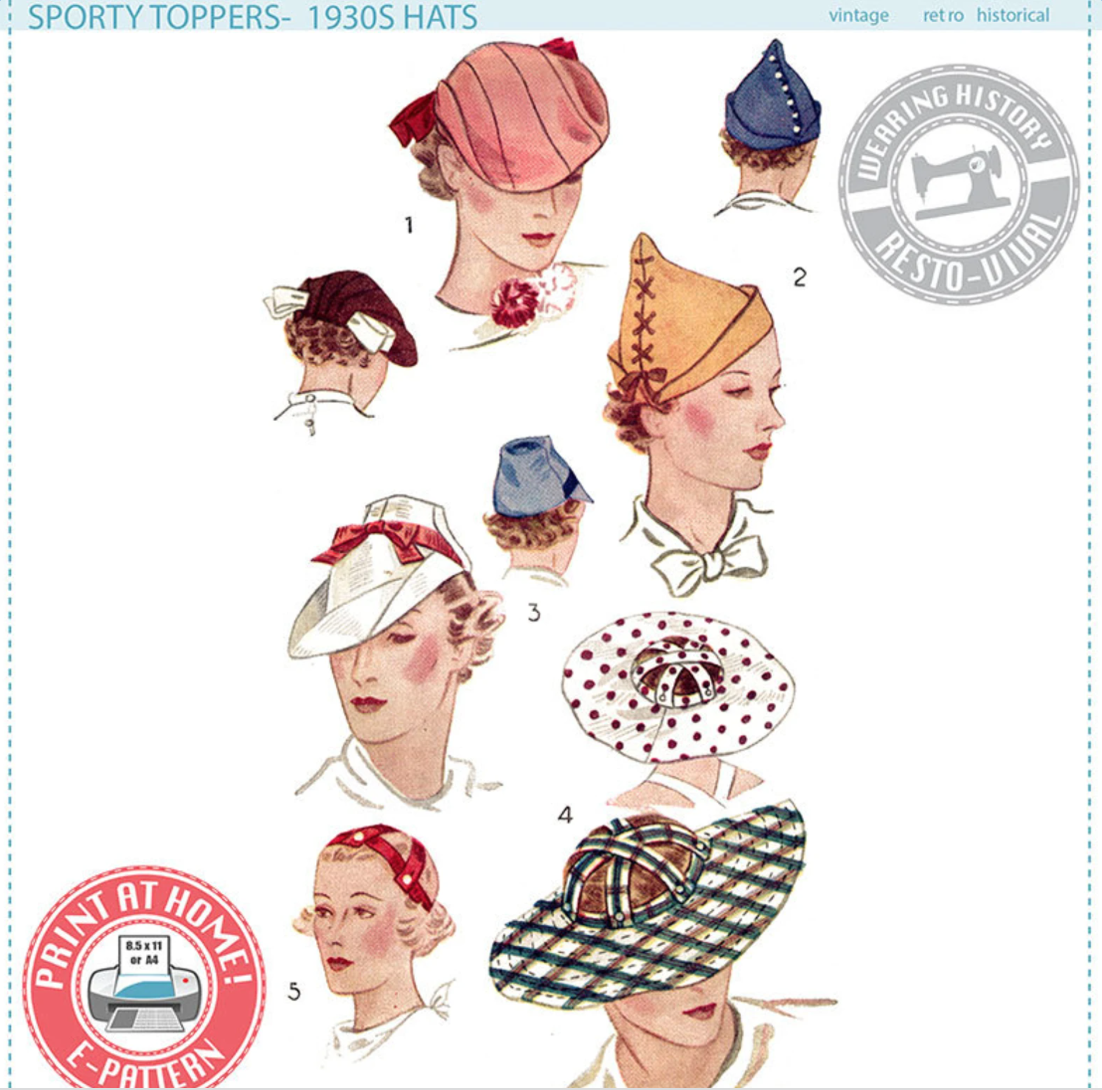Last November I entered the 2021 California Make it With Wool Contest. The Contest promotes the use of wool as a textile and is supported by the National Wool Industry. For me the California contest is local, here in the San Francisco Bay Area, so it’s fairly easy to attend and participate. I used a fabric I was gifted last year, at the 2020 Contest. It was a beautiful piece of wool in a black and tan tweedy check. Lucky me! We were able to choose our favorites and I chose this one because I knew it would coordinate with pieces I already owned. It felt especially nice to use it in the same contest the following year.
I decided to make a 1930’s capelet and a little sporty hat to coordinate with a skirt I already owned and had previously made. It was also made from a tan plaid wool, so I knew it would coordinate. You can see the original post for that skirt here:
https://www.thesewingroomalameda.com/blog/2018/12/9/sewing-a-1930s-blouse-hat-amp-skirt
I really love this skirt and wear it often. It was a delight to make coordinating pieces that complement my existing wardrobe. It was noted by the judges, that I could have interfaced the front (bias) panel of the skirt as the pleats weren’t hanging correctly. I did agree on this point and really appreciated the feedback. The judges were very knowledgeable and knew their stuff. And after the contest, I did take the skirt apart, interfaced the center panel and replaced it in the garment. It took the better part of an afternoon, but I’m so glad I did it. It looks so much better, now.
I had made this caplet before, but out of a cotton fabric. You can read about it here:
https://www.thesewingroomalameda.com/blog/2020/8/9/sewing-a-1930s-capelet-and-another-silly-hat
It’s both a simple and complex pattern, to follow, at the same time. The body and cape sew together relatively easily but the combining of the two takes a bit more effort to get one’s head around. I decided to add lining to the body, to elevate the warmth as well as the finish. During the judging review, it was suggested that I line the cape part as well. I suppose I see the reasoning in that, but it seemed like too much at the time. The climate here is fairly mild and I was also worried about the way it might hang. You don’t often see the underside of the cape and it’s not against one’s skin. So I stand with my decision on that point!
The contest was made up of primarily 4H students along with a few adults. It is split into several Categories - Pre-Teen, Junior (13-18), Senior (18-25), Adult (Over 25) & Made for Others. I believe there is also a separate category for fashion design students. I entered my ensemble of 3 pieces as an adult with one other competitor who had made a vintage 1970’s suit made up of pants and a blazer. She did an amazing job, but in the end, I took the win! It was quite exciting. All participants received wool as a gift and the winners were gifted sewing supplies as well as a monetary gift or scholarship. (you can see my gifts in the photo above)
As State winner I was able to compete at the National level, so I decided to go for it. I had about a month to make my entry and improvements to my garments. The monetary gift I received helped to pay for the expense of sending/receiving my garments as well as photo prints of me wearing my outfit. Sadly I did not win the national contest, but our California winner at the Junior Level, Marrisa, did win her category for the national contest. She made an amazing coat from black and white houndstooth plaid with velvet collar and pockets that she paired with a lime green dress. Her coat was lined in a bright pink and then piped with a lime green piping on the inside. The attention to detail was definitely there. You can see photos of Marissa wearing her coat and dress as well the other National winners below. They had a fashion show of all the winners at a wool convention in San Diego in January of this year.
I really loved participating in this contest. It’s fun and challenging and the competition helps me see where I can improve and level up my skills (or just apply them instead of going the lazy route).
Above you can see a close up of my fabric and button choice along with the Decades of Style # 3009 1930’s Capelet pattern.
I used a dark brown vintage rayon seam binding to finish the edges of the inside facings.
The lining was joined at the back neck and armholes to give a clean finish instead of binding.
Armholes and neck were under stitched to keep the lining from rolling to the outside.
Making the Wearing History Sporty Topper view 3 was surprisingly simple and straightforward. I used the same fabric as my Capelet and added an olive green velvet ribbon to the front as well as matching lining and a grosgrain ribbon as a hat band. This pattern is really quite versatile. I’ve made view 2 as well for a Greater Bay Area Costumer’s Guild Class and combined view 2 with the brim from view 4 to make a fun witch hat. Highly recommend!
For the skirt, I used a 1930’s dress pattern from Vintage Pattern Lending Library. You can read about How I modified the dress to make it a skirt, here:
https://www.thesewingroomalameda.com/blog/2018/12/9/sewing-a-1930s-blouse-hat-amp-skirt
2021 National Make it With Wool Contest in San Diego
Marissa’s coat and dress were really extraordinary when you consider her age (17) and skill level. All of the contestants sewed beautiful garments. I encourage all of you stitchers out there to enter the contest in your state. For more information about entering visit the Make it With Wool website. It’s not too early to start working on your project.

